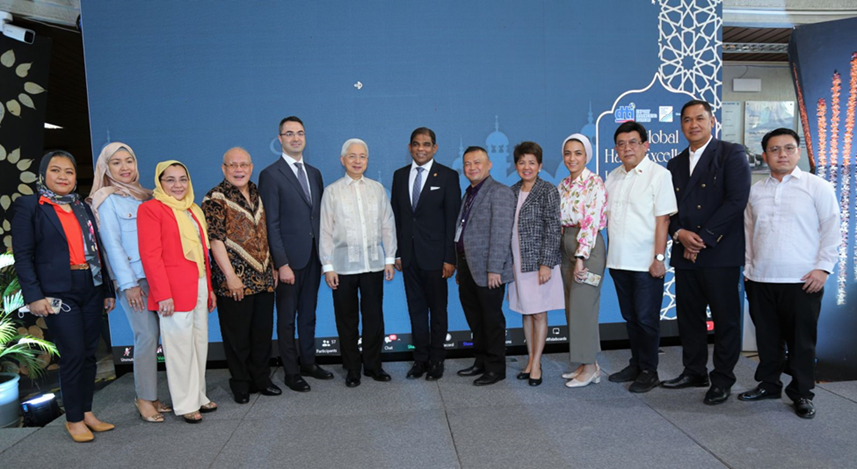
Highlighting the importance of Halal industry in the country’s economic growth, the Philippine Trade Training Center – Global MSME Academy on Tuesday (April 18, 2023) conducted a multi-stakeholder summit titled “Global Halal Excellence: Upskilling, Reskilling, and Converging Halal Capability Building.”
Attended by more than 200 participants both online and on-site, the event was crucial to the Halal industry in the Philippines as it provided a platform for experts in the field to share their knowledge and best practices in Halal production and certification. The event focused on the importance of Halal certification in global trade, particularly in the Muslim market. The Halal industry in the Philippines has been growing steadily, and this event played a crucial role in ensuring that the industry continues to thrive.
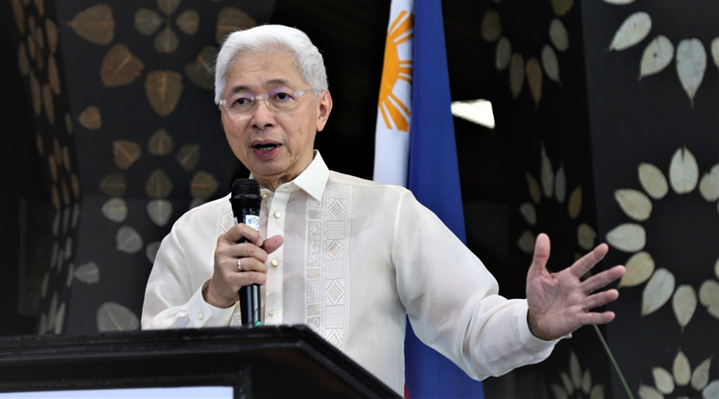
“We see halal food as a sunrise industry and has a great potential to contribute to our goal of economic growth and expansion. We consider the growing Muslim population as a strong demand driver of the global halal economy. Estimated at 1.9 billion in 2020, Muslims reflect 25% of the world’s population and projected to grow up to 2 billion by 2030,” Secretary Pascual said.
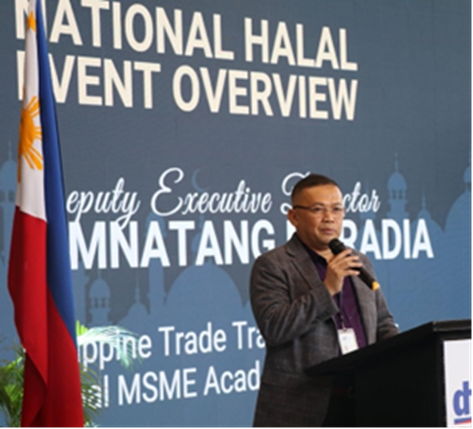
In his welcome message, Philippine Trade Training Center – Global MSME Academy Deputy Executive Director and Halal Program Brand Manager Dimnatang Radia expressed his gratitude and appreciation to the attendees of the event.
“This is such a momentous event not only for PTTC-GMEA but to the entire Halal industry as we try to learn processes, systems, best practices, and many others as we upskill, reskill, and converge our fellow Halal advocates,” he said.
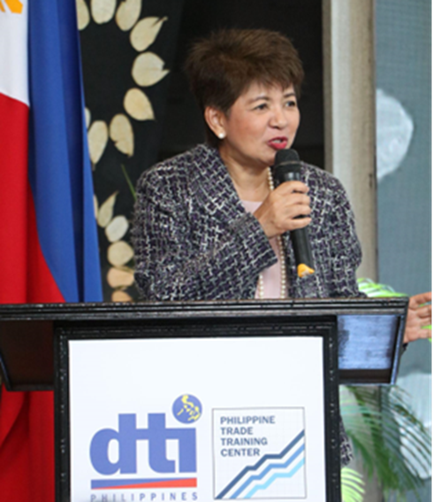
“This event highlights the importance of continuous learning and capacity building in the halal industry. As the demand for halal products and services continues to rise globally, it is crucial for MSMEs (micro, small, and medium enterprises) and other stakeholders to stay ahead by upskilling, reskilling, and converging their capabilities to meet the growing needs of the halal market. This event serves as a platform to promote knowledge sharing, innovation, and best practices in the halal industry, empowering businesses to excel in the global halal ecosystem.
Through strategic capacity building initiatives, including training, research, and collaboration, the Philippine Trade Training Center – Global MSME Academy aims to enhance the competitiveness of the halal industry in the Philippines and contribute to the country’s participation in the global halal economy,” said Nelly Nita N. Dillera, PTTC-GMEA Executive Director.
Marketing Halal Products and Services
During the plenary sessions, Ms. Intan Zalani from the Malaysia External Trade Development Corporation shared insights on promoting HALAL in Malaysia industries like MIHAS, which is a premier international business convention specific for HALAL products and services. She emphasized that well-structured, inter-government operational bodies resulted in the formation of best practices and recommended for the Philippines to strengthen its own inter-government operational bodies, such as EMB with its Halal Section and PTTC-GMEA with its very own Halal Unit, and other agencies pursuant to RA 10817.
Asst. Director Jhino Ilano from the Export Marketing Bureau asserted that there are untapped markets and existing ventures that Philippine MSMEs can capitalize on, such as pharmaceuticals, cosmetics, among others. He recommended that diversification of the HALAL products and services, which will happen by understanding the way of HALAL, would be beneficial for the industry as it breaks misconceptions on HALAL being limited to food only.
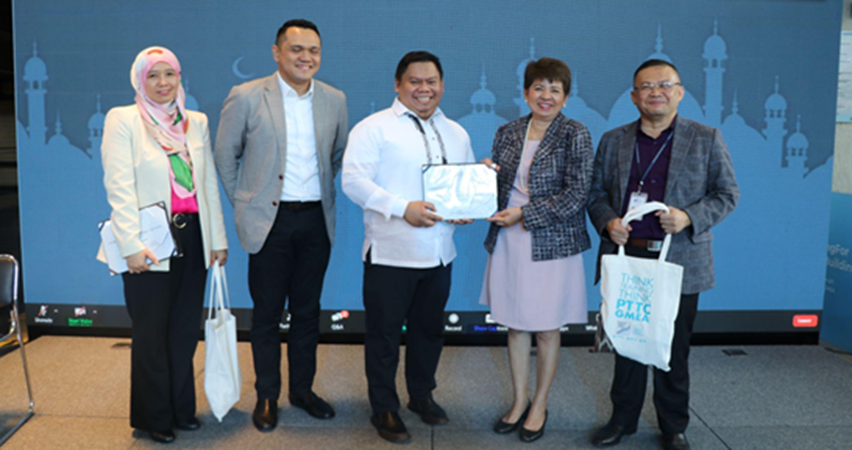
Mr. Aleem Siddiqui M. Guiapal, OIC Deputy Director General and Concurrent Group Manager of the Promotions and Public Relations Group from the Philippine Economic Zone Authority, presented opportunities in the existing economic zones in the Philippines and the PEZA mandate of promoting HALAL investments, creating employment for HALAL workers, and generating opportunities for HALAL importation and exportation. He invited MSMEs in the priority industries to partner with PEZA as part of their Investment Attraction Strategies, supported by Pres. Marcos’ EO# 18 for Investment “Green Lanes.”
Attendees were given a brief walkthrough on the steps and requirements in the certification process in Brunei presented by Ms. Wajihah Binti Zainuddin from the Halal Food Control Division, and Ms Siti Hazirah binti Abu Hassan, Head of Inspection Unit both from the Department of Syariah Affairs, Ministry of Religious Affairs, Brunei.
Halal Market Compliance and Requirements
Engineer Rahmatol Mamukid, Director IV from Bureau of Muslim Economic Affairs of the National Commission for Muslim Filipinos, discussed the development of Lanao and Marawi City as HALAL Tourism Special Economic Zones by creating a special Muslim community in every
municipality called “Lake Lanao Special Economic Zone.” He emphasized the need for collaboration between existing hotels and beach resorts to create Halal-certified accommodation in the “Lake Lanao Special Economic Zone,” which can benefit other HALAL hubs nationwide.
Dr. Gari Ellinor Hernandez, a Senior Science Research Specialist from the Standards Development Division of Bureau of Agriculture and Fisheries Standards, presented the codes of Halal Slaughtering practices, the health benefits related to food safety, and the process of accreditation for HALAL raw meats. He recommended designating Muslim Halal Officers or a Committee to ensure effective implementation of the Halal Assurance System, as the Halal slaughterhouse is the start of the value chain.
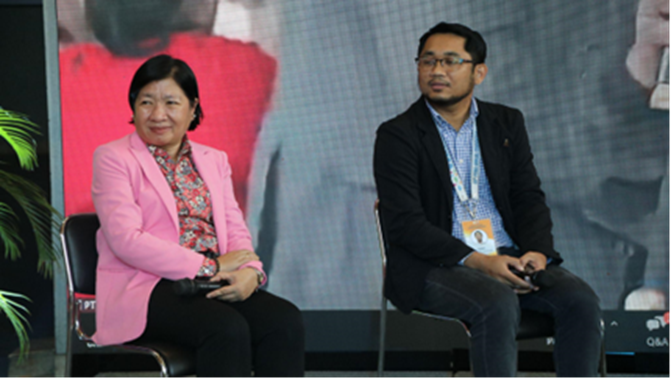
Ms. Ma. Juanita P. Carpio, the Head of the Halal Division of the Philippine Accreditation Bureau, discussed the importance of HALAL certification in the Philippines for Muslims to identify acceptable products. However, it is difficult to impose HALAL standards and procedures on the manufacturing and food processing industry. She emphasized the importance of Mutual Recognition Arrangements (MRAs) in removing trade barriers, efficient enforcement and monitoring of trade, greater acceptance of products and services, and public confidence.
Lastly, one of the recommendations from the Pre-Event Workshops for the Food Sector emphasized the importance of MRAs. MSMEs should take advantage of the Halal certification in the Philippines to capitalize on untapped markets and diversify their products and services. Effective implementation of the Halal Assurance System can be achieved by designating Muslim Halal Officers or Committees in slaughterhouses. Finally, Mr. James Russell A. Sz from the Office of Undersecretary for Mindanao Affairs Myra Paz Valderrosa-Abubakar of the The Department of Tourism (DOT) collaboration between hotels and beach resorts can help create Halal-certified accommodation in HALAL Tourism Special Economic Zones such as the “Lake Lanao Special Economic Zone,” which can benefit other HALAL hubs nationwide.
Training and Development Programs for the Halal Industry
The Philippine Trade Training Center-Global MSME Academy is also playing a significant role in the development of the halal industry, as presented by Engineer Kyrin Christian Pango. PTTC offers a comprehensive and systematic skills-building approach for halal MSMEs through its Enterprise Development Track, which includes a specific halal training program for every MSME. PTTC has developed various training brands to address the needs of MSMEs, such as startups, gender and development, and finance and marketing.
TESDA’s Acting Chief Bernadette Audije recommended strengthening the Area-based Demand Driven TVET program to better recognize which regions and provinces prioritize halal or halal-related skills. TESDA aims to strengthen the skills mapping of Regions IX, X, XI, XII, XIII, and BARMM to better define specialized halal skills.
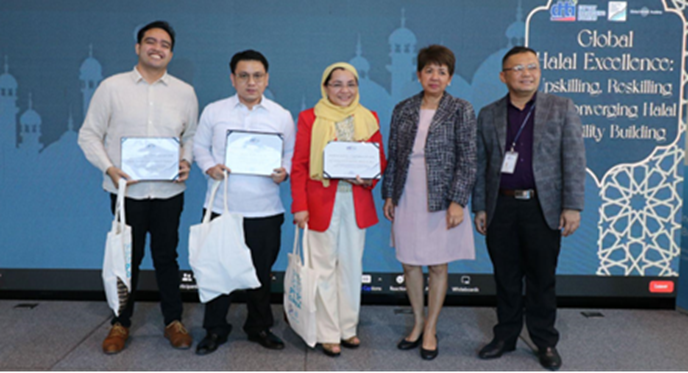
Meanwhile, Atty. Arifa Ala of the Bangko Sentral ng Pilipinas emphasized the need to reinforce the Islamic Financial Ecosystem, which will create an enabling environment for Islamic banks and Islamic banking windows to operate alongside conventional banks. She recommended promoting financial inclusion and stability to better meet the needs of financially underserved populations and promote a high quality of life for all Filipinos.
Philippine Halal Export Development and Promotions Board Member Sultan Faizal Cocoy Bansao also discussed the role of private sector in the Halal Ecosystem, while Consultancy and Advisory of the Halal Development Corporation Malaysia’s Muhamad Noridham Nordin laid out the best practices and training programs available to the public.
“To assure that follow through is done after this event, maximizing the insights and inputs from our Resource Speakers and guests, as well as the feedback from our MSMEs, the designation of a Halal unit within PTTC-GMEA would be instrumental to this end. As mentioned, this would assure a focused workforce on the advancement of the agency’s platform for Halal industry training in the Philippines. This unit will be capacitated to collaborate with other existing teams at PTTC, such as the Philippine Skills Framework to assist in professionalizing the Halal workforce across sectors,” said PTTC-GMEA Deputy Executive Director and Halal Brand Manager Dimnatang Radia.
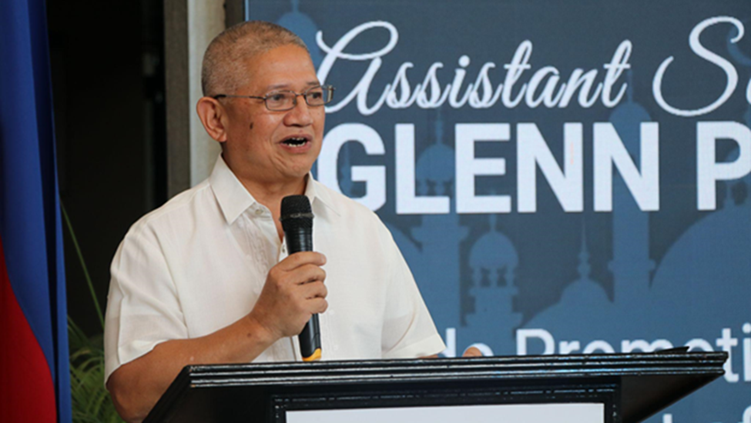
DTI-Foreign Trade Services Corps and OIC of the Trade Promotions Group Assistant Secretary Glenn Peñaranda also noted that “it is important for the government to work together with the industry for MSMEs to be educated and trained on the global Halal trade, to establish greater standardization and harmonization of Halal certification, and to ensure that consumers have confidence in the authenticity and integrity of Halal products and services.”
Ambassadors show support to Philippine Halal Industry
Representatives from the embassies of Malaysia, Indonesia, Brunei, United Arab Emirates, and Turkey attended the event.
In their messages, Malaysian Ambassador H.E. Dato’ Abdul Malik Melvin Castelino bin Anthony and Turkey’s Third Secretary Mr. Zeki Furkan Kucuk expressed their support for the program and PTTC-GMEA’s vision of creating the Philippine Halal Ecosystem.
“Malaysia stands ready to support, assist, and share experiences that we have with the Philippines and I’m glad to say that with the visit of the Prime Minister of Malaysia and with the meeting with President Bongbong Marcos, a lot of decisions were made and one of it is to promote trade investment which is led by Secretary Pascual, our focus will always be on the Halal industry,” Castelino said.
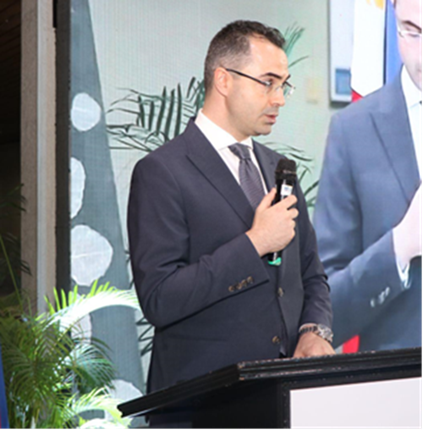
“I hope that in today’s event, Malaysia and the Philippines will continue to work hand in hand, especially in training related to the Halal industry,” he added.
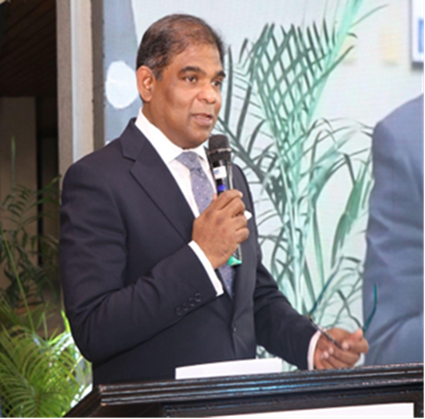
For his part, Kucuk noted that Turkey “appreciates the efforts of Philippine agencies, especially the Philippine Trade Training Center – Global MSME Academy to establish a halal ecosystem in the Philippines… In this respect, we are really interested in collaboration and cooperation with the Philippines in the near future in this field.” ♦
Date of release: 08 May 2023



